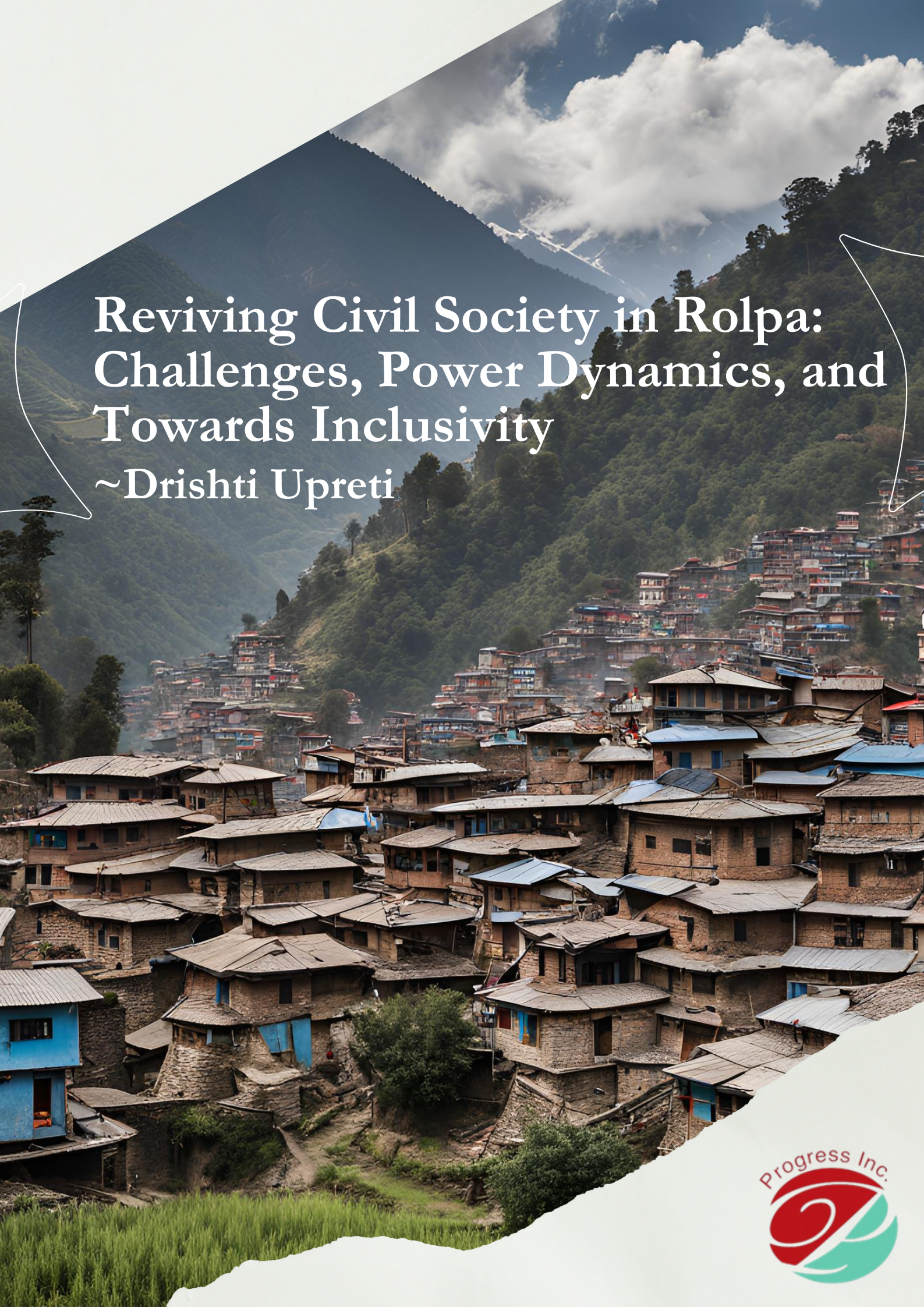Drishti Upreti
Civil Society Organizations (CSOs) in Rolpa, Nepal has a complicated history, shaped largely by the district’s conflicting past, especially the Maoist conflict that took place from 1996 to 2006. Before the insurgency, Rolpa showcased a flourishing civil society, with many organizations working on social, economic, and governance issues. These CSOs played an important role in promoting social justice, holding local government officials accountable, and supporting marginalized communities.
However, the outbreak of the Maoist insurgency changed the scenario for CSOs in Rolpa. The Maoists, who had strong support in the district, saw CSOs as potential threats to their control and authority. As a result, many CSO leaders faced harassment, threats, and even violence. Some were killed, while others had no choice but to flee the district for their safety. Many organizations were either closed or severely restricted in their activities as both the State and the CSOs focused on surviving the conflict and dealing with its immediate effects.
After the Comprehensive Peace Agreement ended the Maoist conflict in 2006, Rolpa’s civil society sector struggled to recover. The long conflict had taken a toll, leading to the loss of funding and trained staff, which made it difficult for many organizations to rebuild. Despite efforts to restart, CSOs in Rolpa have faced challenges like lack of funding, reduced capacity, and loss of public trust, which have slowed their long-term growth. The rise of politically associated CSOs has further divided the civil society landscape, as many of these organizations focus more on their political agendas rather than the needs of the larger community. As a result, only a few independent organizations have put their voices on local issues.
In the current context, while many organizations still claim to prioritize inclusivity and the empowerment of marginalized groups, real decision-making power within CSOs is often concentrated in the hands of a few, particularly male representatives, even in mixed-gender groups. This concentration of power limits the true involvement of women and marginalized communities in determining social initiatives. While gender quotas are in place, they often only lead to symbolic inclusion rather than real progress.
Additionally, CSOs face financial instability because they depend heavily on irregular donations and local government funding. This donor dependency makes it harder for organizations to address urgent issues like economic empowerment, gender equality, and youth migration, as the funding they receive may not align with the actual needs of the community. Although some programs, such as those supporting youth innovation and small businesses, show promise, larger issues like poverty, limited education, and social inequality still exist.
Moreover, the outflow of youth seeking employment abroad further adds to the burden for CSOs to create real change. The situation is made worse by difficulties in hiring and retaining staff, especially in rural areas, which limits the ability of organizations to expand their programs and make a lasting impact. The progress towards inclusive and sustainable development in the district is still held back by the division within the civil society and the lack of a meaningful role in decision-making.

